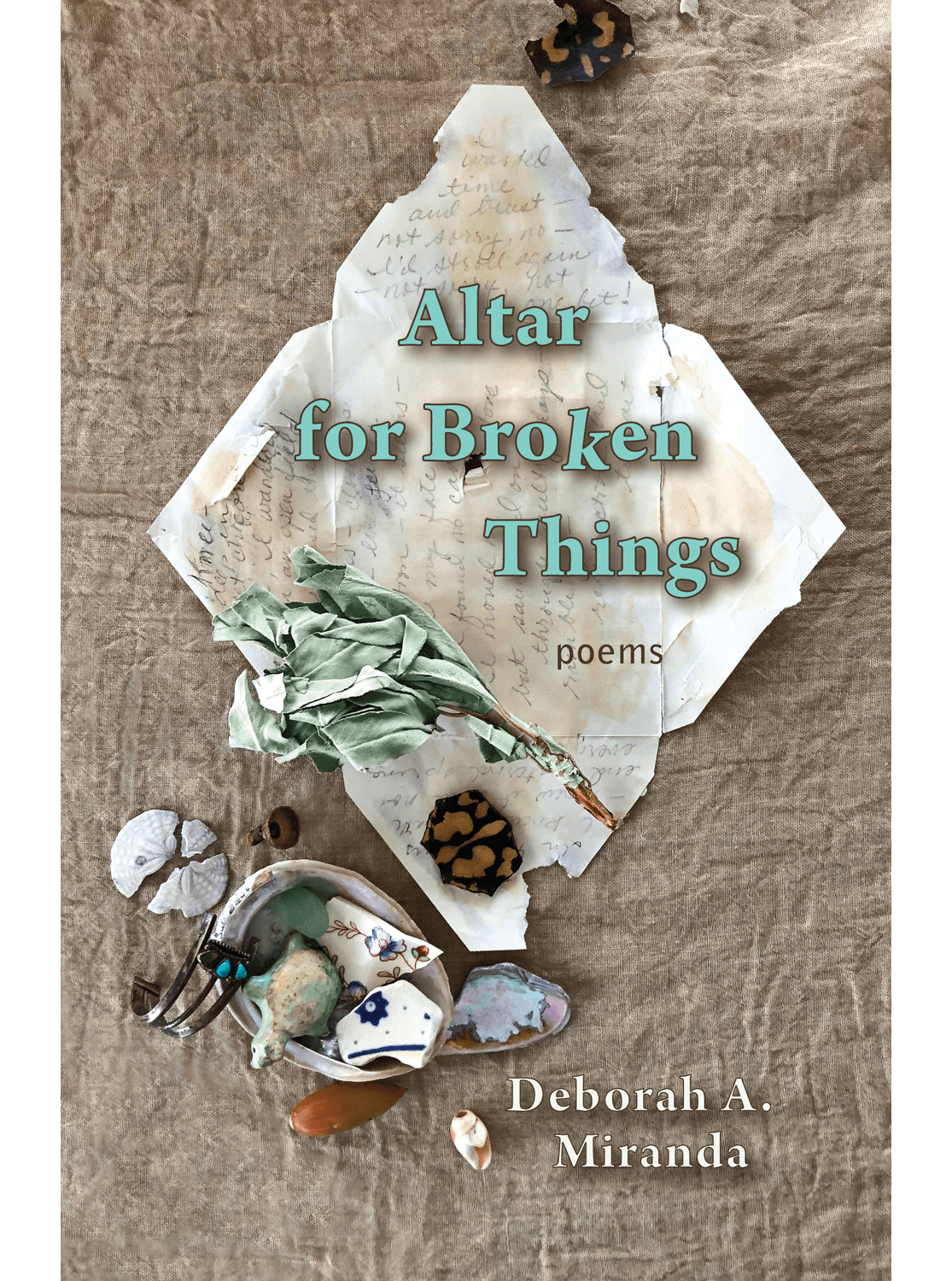These poems explore interlocking themes of sacrifice willing and forced and the sacred dimension of nature and the need for healing in the suffering world.
Altar for Broken Things
$14.95
Poems
Deborah A. Miranda
110 pages
November 2020
978-1-943491-26-1 (paper)
“The element called Colonialism is composed of ‘toxic events,’ Deborah Miranda says, so she urges us to choose ‘Indigenous elements/Story, Dance, and Song.’ These elements allow Miranda to look on damage and still worship creation’s gorgeousness and life. Each poem is a ripeness offered—to unknown gods—in fruit, flower, feathers, even flesh ended in rampage, the burnt sacrifice implied in the word altar. Yet in these poems bees still pollinate, oysters still make pearls, women still yearn to scratch ‘the smell of exile’ and brokenness off their skins to wade away from regret, to die blessed or live free in the world’s many waters.”
—Heid E. Erdrich
“Altar for Broken Things is a lyrical pilgrimage for devotion and integrity in which the land itself is the site of worship. Miranda’s poetry takes an encompassing view of the ways that perception and intent intersect with faith. An altar, the reader is reminded, takes its name from elevation. As these poems guide the reader, it is made clear that altars abound. The currents of these poems move in the territory of the sublime, but the abiding faith and beauty of the speaker’s telling is an unimpeachable guide.”
—Laura Daʼ, author of Transmotion
Distributed for BkMk Press.

